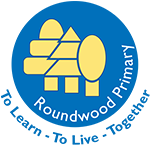- Bar Modelling for Parents March 19 Workshop
- KIRFS-Half Termly Breakdown
- KS2 Practice Bar Modelling
- Maths at Home
- Maths Glossary
- Parent Workshop Fluency Reasoning Problem Solving
- Progression in Mental Fluency Yrs 1-6
- Take One Calculation KS1
- Take One Calculation LKS2
- Take One Calculation UKS2
- Videos of Key Methods
- Whole School X Tables
- Yr 1 Revision Guide
- Yr 2 Revision Guide
- Yr 3 Revision Guide
- Yr 4 Revision Guide
- Yr 5 Revision Guide
- Yr 6 Revision Guide
- Yr Rec Revision Guide
- 01582 460756
- admin@roundwoodprimary.herts.sch.uk
Home » Mathematics
